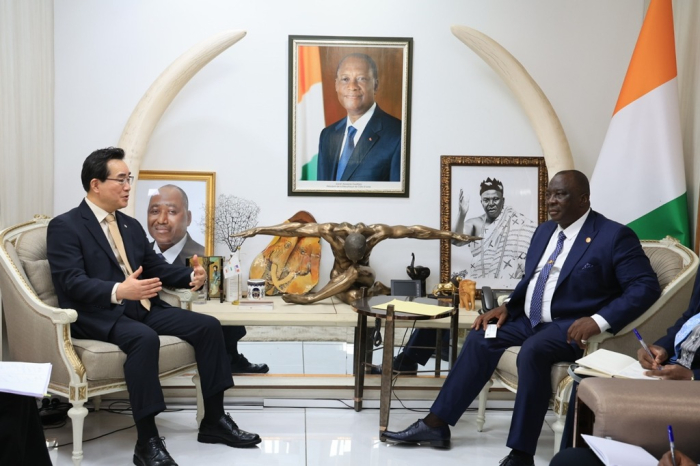South Korea is increasing the number of African countries participating in its official development assistance (ODA) project to alleviate the chronic food shortage on the continent.
South Korea’s Minister of Agriculture, Food and Rural Affairs Chung Hwang-keun on Wednesday signed a memorandum of understanding with Côte d'Ivoire’s Minister of Agriculture and Rural Development Kobenan Kouassi Adjoumani for
the K-Ricebelt, according to Seoul.
Côte d'Ivoire, the first African country that established diplomatic relations with the Asian nation in 1961, spends about 900 billion won ($665.2 million) on rice imports as the crop production meets less than half its consumption, the South Korean agricultural ministry said.
Earlier this week, Sierra Leone agreed to join the project, which aims to help African countries increase rice production with South Korean seeds and agricultural technology, according to the country’s agricultural ministry.
QUADRUPLE RICE YIELDSThose deals raised the number of participants in the program to 10 – those two nations, Ghana, Gambia, Guinea, Guinea Bissau, Senegal, Uganda, Cameroon and Kenya, the ministry said.
Through the K-Ricebelt, South Korea plans to grow improved rice varieties in Africa developed by cross-fertilization of the country’s rice and African varieties to produce seeds and supply to local farmers.
Rice yields of the improved varieties stand at five to seven tons per hectare, about a quadruple 1.5 tons of the yields of African varieties.
Meanwhile, Chung, a special presidential envoy, met top officials of Côte d'Ivoire and Sierra Leone to ask their support for
South Korea’s bid to host the World Expo 2030 during his visits to the West African countries on Oct. 15-20.
Write to Jung-hwan Hwang at
jung@hankyung.com
Jongwoo Cheon edited this article.


